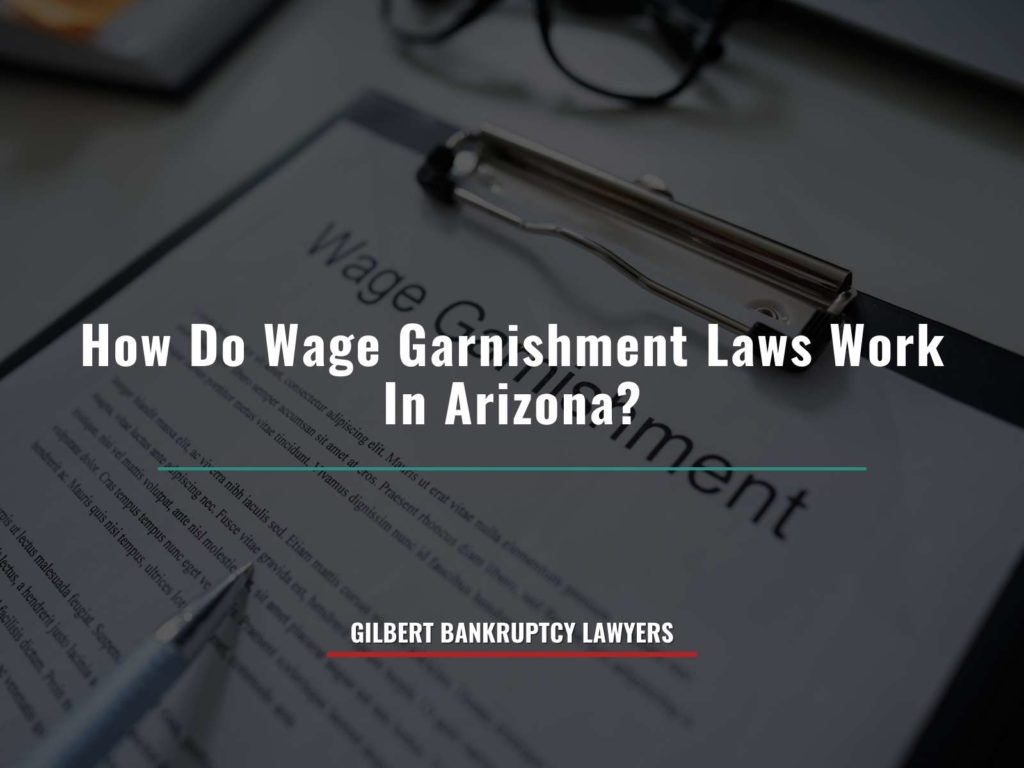Wage Garnishment In Arizona: Everyting You Need To Know
A wage garnishment is a court order that requires your employer to withhold a specified amount of money from your paycheck and send it directly to a creditor. If you are behind on credit card payments or medical bills, your wages cannot be garnished unless the creditor sues you and obtains a judgment from the court. Other creditors, such as child support or alimony, have a statutory right to garnish your paycheck without a court order.
What Are The Limits On Wage Garnishment In Arizona?
Even if you owe a very large amount of debt, creditors cannot seize all of your paychecks; there are legal limits to how much can be garnished. According to federal law, no more than 25% of your disposable earnings per week can be garnished after mandatory deductions or the amount by which your disposable earnings exceed 30 times the federal minimum hourly wage, whichever is less. Individual states have the ability to impose stricter limits than federal law, but Arizona essentially follows federal law with a few additional protections. For example, garnishment can be reduced to 15% in the event of extreme economic hardship.
Your wages will be garnished until your debt is paid in full or until you are able to stop the garnishment. Two of the most common ways to stop a garnishment are claiming an exemption with the court or filing for bankruptcy. Bankruptcy can potentially stop almost all types of wage garnishments. Talk with your Gilbert bankruptcy law office to learn more about how filing for bankruptcy can affect your wage garnishment.
What Are “Disposable Earnings”?
“Disposable earnings” indicate the remaining portion of your paycheck, salary, or other compensation for services, including bonuses, commissions, payments to a pension or retirement program, or deferred compensation plan, after mandatory tax deductions have been taken. Because the calculation for disposable earnings and wage garnishment can be confusing, it can be helpful to consult with a Gilbert bankruptcy attorney to learn more about wage garnishment limits and how filing for bankruptcy can effectively stop wage garnishment.
What About Child Support, Student Loans & Taxes?
Court orders for child support include an automatic income withholding order, meaning that child support is automatically deducted from your paycheck without a special court judgment. If you are behind on child support, the other parent can get a wage garnishment order from the court, although this type of wage garnishment is limited by federal law. In Arizona, up to 50% of your disposable earnings may be garnished for a child support order.
The U.S. Department of Education can garnish up to 15% of your pay if you default on a federal student loan, called an administrative garnishment. Because regulations regarding wage garnishment are subject to change and may be affected by student loan forgiveness programs, always consult with your Gilbert bankruptcy lawyer to learn how the laws may apply to your situation.
If you owe back taxes, the federal government can garnish your wages without a court judgment. The exemption amount that you can keep will depend on a variety of factors, including your standard deductions. You may also face wage garnishments for unpaid state and/or local taxes.
How Can I Protect My Wages from Garnishment?
If you’ve received a notice of a wage garnishment order, you may be able to protect or exempt some, or all, of your wages by filing an exemption claim with the court. Filing for bankruptcy will also stop most garnishments, at least temporarily. Your Gilbert bankruptcy attorney can help you understand how filing for bankruptcy can stop wage garnishment and help you determine the best way to manage your debts.
Am I At Risk Of Job Termination Due To Wage Garnishment?
Complying with wage garnishment orders is additional work for your employer, and some may prefer to terminate your employment rather than deal with the hassle. However, federal law provides some protection: your employer cannot terminate your job if you have one wage garnishment order. Arizona offers additional protection for debtors. Your Arizona employer cannot fire you for a child support withholding order. Although new hires may be required to disclose an existing child support withholding order, your employer cannot discriminate or base their hiring, firing, and disciplinary actions on this information.
Get Help With Wage Garnishment From An Experienced Bankruptcy Lawyer In Arizona
Wage garnishment can be overwhelming, but Gilbert Bankruptcy Lawyers are ready to help you understand your legal rights and options. Our firm has extensive experience navigating the complexities of federal and state bankruptcy law. We work on behalf of all of our clients to provide trustworthy legal advice and the best financial options. Contact us today to schedule your confidential, obligation-free consultation and learn more about how we can help you.
Gilbert Bankruptcy Lawyers
Office: 480-448-9800
Email: info@myazlawyers.com
Website: https://gilbertbankruptcylawyers.com
Additional Information at:
Phoenix Bankruptcy Lawyer
Mesa Bankruptcy Lawyers
Phoenix DUI Lawyer
Chandler Bankruptcy Lawyer
Tempe Bankruptcy Lawyers
Vegas Zero Down Bankruptcy Attorney
Gilbert Bankruptcy Lawyers
Tucson Bankruptcy Lawyer
Arizona Zero Down DUI
Las Vegas Bankruptcy Lawyers
AZ Bankruptcy Lawyer

